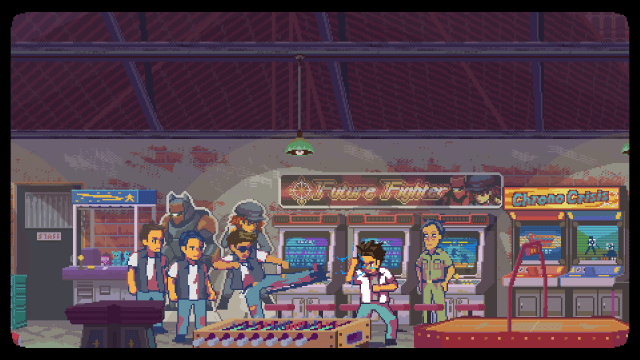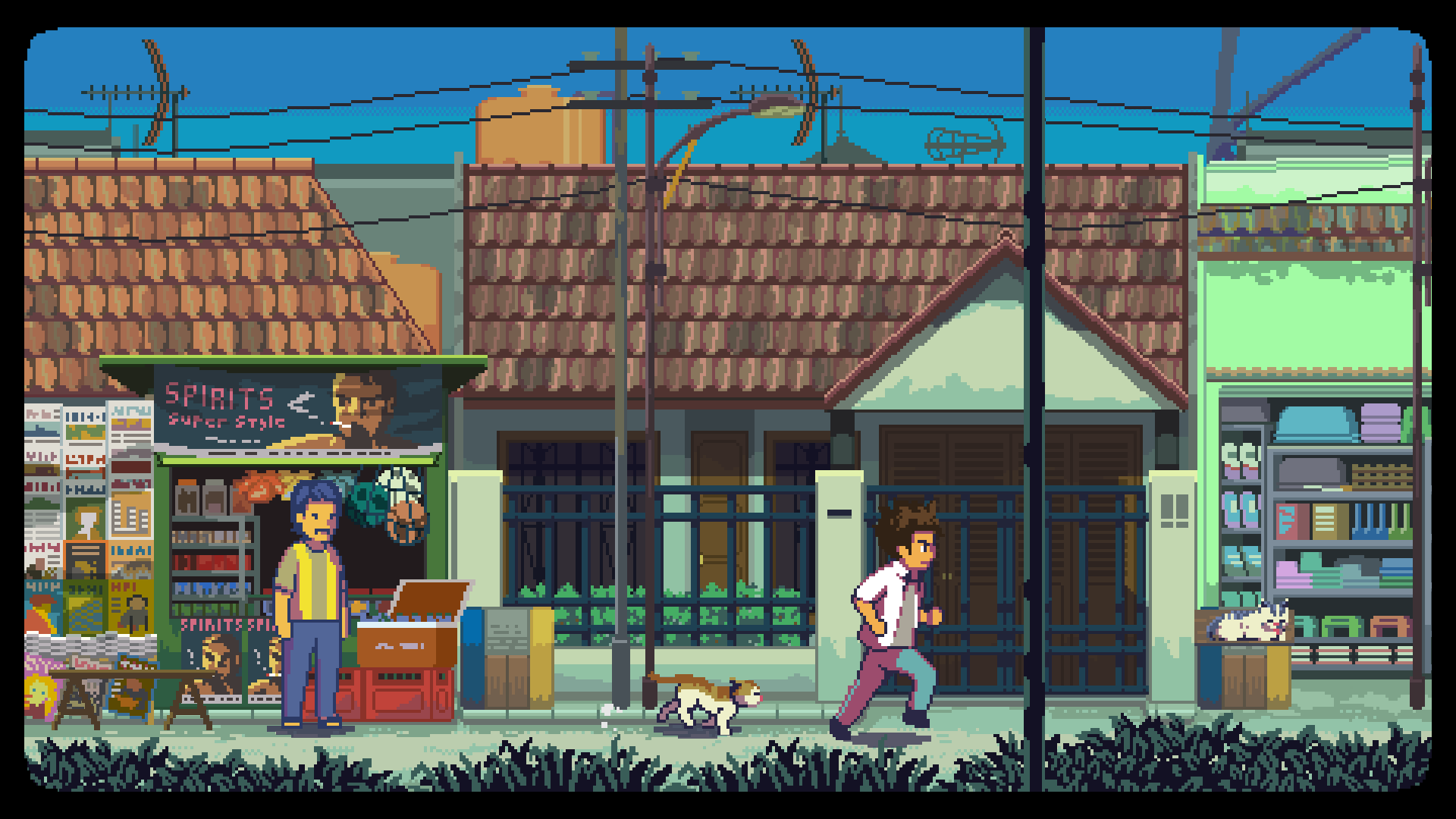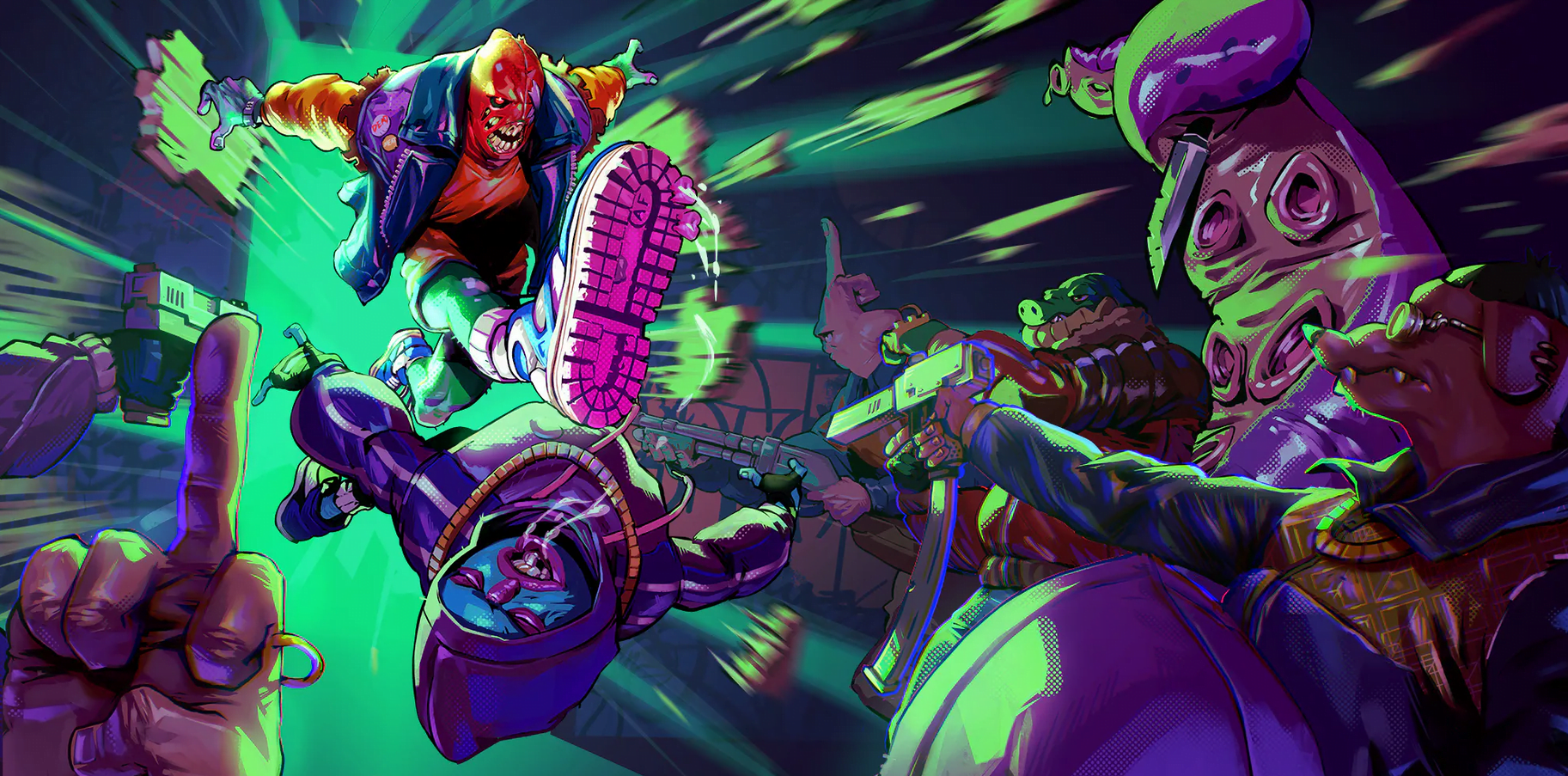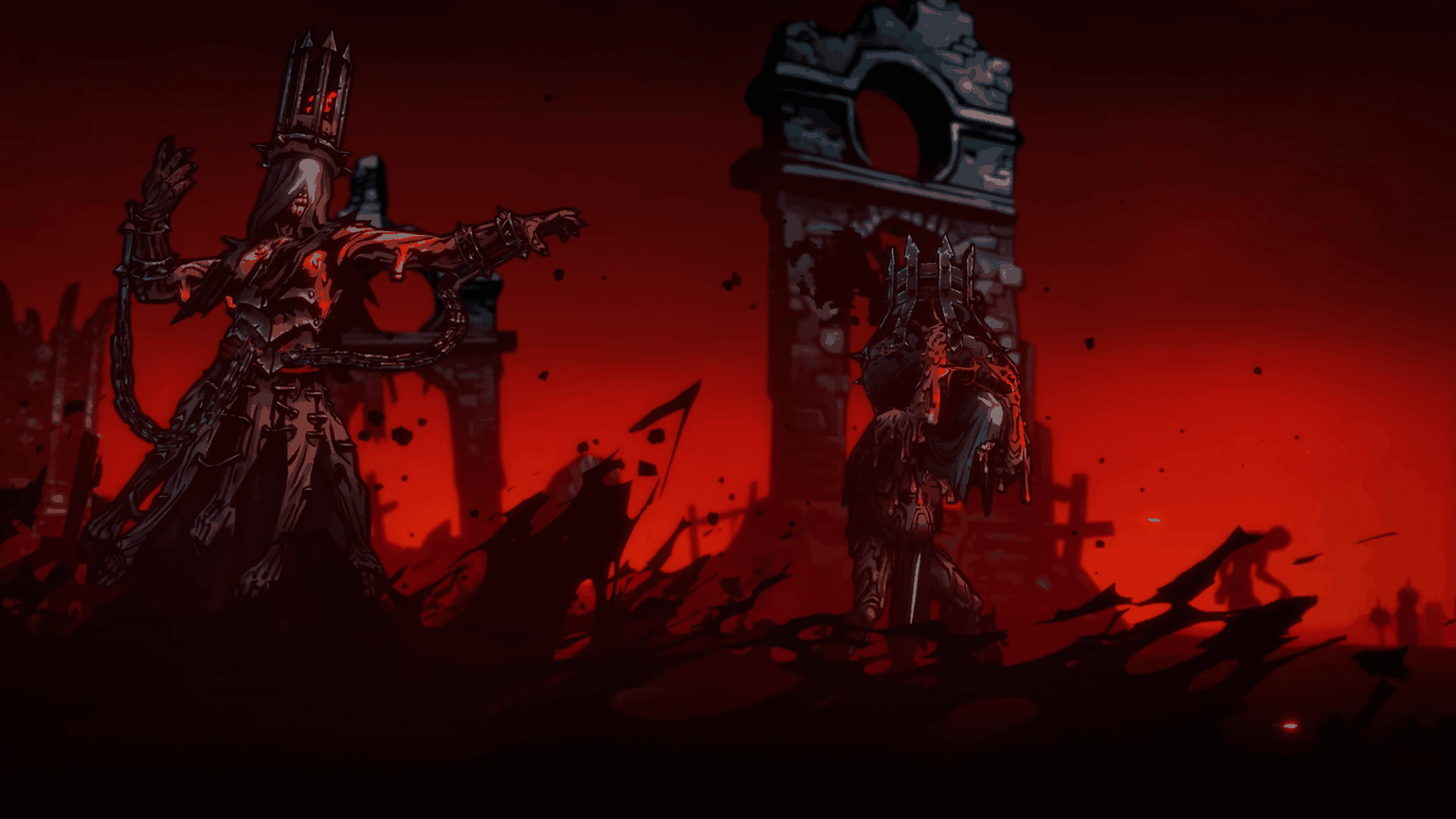“It feels like when high school ends the whole world might go with it,” says one of the central characters of A Space for the Unbound early on. That’s a common theme in media set during the twilight years of adolescence. Those last moments where you’re no longer considered a kid, technically, and life becomes far more complicated as the weight of responsibilities and expectations of adulthood come crashing down. It’s a tough time, particularly if life has already dealt you a rough hand. A Space for the Unbound is a game set in that sort of framing, but doesn’t dwell on that part specifically, instead using it as a launchpad for something more, a story that already could easily be one of the year’s best.
Set in a small Indonesian town in the 90s, A Space for the Unbound is a coming of age story about a couple of high school students, Atma and Raya, during the end of their time at school. The pair are supposed to be filling out forums for career guidance, but neither are feeling particularly motivated to do so. Instead they decide to create a bucket list of things they want to accomplish or do together before the school year is up. Among the list of items: watching a movie together, get a pet cat, listen to music and bawl their eyes out, and pet the fluffiest animal known to man (“Fluffasarus still roams the streets…”). It’s cute.
It’s not just a slice-of-life style story, though. Aiding them in this little adventure are their powers. Atma and Raya are unique in that they have supernatural abilities that allow them to directly change and influence the world around them. Atma has the ability to dive into someone’s subconsciousness via a book he carries while Raya can alter reality itself at will. They have their limits, of course: Atma can only dive into someone’s mind under specific circumstances (denoted by a mark appearing over their head that only he can see), and Raya can only use her powers so much before she succumbs to exhaustion, limiting the kind of influence she has.
How they use their powers differ. Atma tries to use his to help people with their problems where he can or when otherwise necessary. Raya uses hers largely in service only of Atma and herself, usually making small, harmless changes to reality or creating entire spaces just for them, careful not to do anything that would radically disrupt any sense of normalcy. It’s about as responsible as you could hope for from a couple of teenagers with such powerful abilities.

Things quickly get out of control, however, when people around town start acting unlike themselves. Every day brings some new event that requires Atma to step in and bring everyone to their senses again via his powers – movie theater employees acting like cats all of sudden, a known florist in the community suddenly becoming a pyromaniac, or people disappearing entirely along with seemingly everyone’s memories of them. Raya becomes less present and no one can physically say anything about her in one instance. Cracks keep forming in the sky all the while. As the situation continues to escalate, Atma’s forced to confront some hard truths about the reality of what’s happening, his role in all this, and what needs to be done to stop it.
At its core, A Space for the Unbound is a story of someone dealing with very deep depression and anxiety. It doesn’t offer empty platitudes or end in such a way that makes everything all sunshine and rainbows by the end, nor does it wallow in sorrow and misery, but rather feels more grounded despite the extraordinary circumstances. It feels like a more thoughtful and understanding take on those topics in that it knows there’s no quick and easy solution and is willing to give its characters the room to overcome those hurdles at their own pace. In lesser hands, A Space for the Unbound could easily be too cloying and heavy-handed. Instead its writing clearly demonstrates a deftness that comes with understanding how to broach these sorts of subjects carefully.
It helps that the writing is consistently excellent throughout. Atma and Raya are fun characters to follow. Any scene where they’re able to just hang out and get up to shenanigans are delightful. Even just following Atma along the many mundane errands and the increasingly strange events he has to deal with are enjoyable in part because the people around the city are equally fun characters. There’s an earnestness to the writing that makes it work. It’s always willing to present itself honestly and confidently, resisting any urge to react to anything with detachment or irony or have any of the central characters balk at what’s happening. It’s even able to be pretty naturally funny at times, which is no small feat given the usual state of comedy in games.
A Space for the Unbound is largely a standard adventure game. Puzzles revolve around using X item on Y object or person with the occasional search for clues for either a code or info. They’re all pretty simple to get past. I only really got stuck once, which is far better than I was expecting given how easily adventure game puzzles can become logical nightmares. It helps that it tends to keep the search areas pretty contained when you are running around for clues to avoid leaving you running around for long.

Often the searching comes into play when Atma is diving into someone’s mind. When he does so, he can go back and forth between them and reality at will, allowing him to bring items from the real world back into the subconscious one to assist him. In one case, wherein he’s trying to “help” a chef decide which kind of cuisine she wants to pursue instead of baking, the chef has effectively split herself into multiple selves that are competing in a cooking competition. Whoever wins decides what sort of food she’ll pursue. Because she wants to leave baking behind, her baker self has had all of her tools stolen by other chefs. Atma has to then sabotage them using ingredients that will disrupt the dishes they’re making to get those tools back so the baker can win by default.
I say “help” because, while Atma does need her to stick to baking for story reasons, it’s clear the chef really does want to branch out and he feels conflicted about using his powers this way. He tries to use them only when it seems to actively help someone or is at least harmless enough that he can do so to achieve whatever his current objective is without causing problems (convincing a worker to take a much needed rest so he can borrow a ladder, for instance). Most other times he dives into someone’s mind, the results do help the person in question, though there are at least a couple where his good intentions, while ultimately good, do have some unforeseen effects that he can’t help but feel at least a little guilty about.
There’s also the occasional minigame of sorts to add a touch of variety, such as acting as the prosecution in a courtroom filled with waterfowl, fending off bullies by playing a pseudo-fighting game of sorts, or sneaking around to avoid being spotted. Some are recurring throughout and others are just one-off deals, but they do provide a fun bit of variety in the minute-to-minute play, particularly when the scenes surrounding them are fun.
The ease with which A Space for the Unbound can bounce between tonal shifts – the goofy and sincere, the difficult and moving, the supernatural and the grounded – without feeling at odds with itself speaks to the strength of both the story and the writing as a whole. It’s a carefully crafted game, one that succeeds at almost every turn, spinning a deeply moving and touching story all the while. After last year’s cavalcade of strong stories in games, with any luck, A Space for the Unbound will herald another coming of incredible stories in games this year.





